Welcome to the Department of Animal Science
With nationally recognized faculty, state-of-the-art facilities within walking distance of campus, and a vibrant community of students, we offer transformative experiences that prepare graduates to lead in science, industry, and beyond.
Jumpstart Your Equestrian Career!
The University of Connecticut’s Department of Animal Science is excited to announce the launch of a new Bachelor of Science in Equine Science and Management, set to welcome its first cohort of students in fall 2026.
UConn Hunter Equitation Clinics
April 18-19, 2026 | UConn Storrs Campus
Learn from college industry professionals, meet the UConn Equestrian Team and horses, and showcase your riding skills in a spring clinic at UConn. The one-day fall clinic will include horse schooling, a course walk, and a mock show with over-fences and flat divisions. The two-day spring dates will include a college selection and recruiting clinic and a hunter equitation clinic.
By The Numbers
STUDENT COMMUNITY
500+
Students pursuing undergraduate and graduate degrees.
EXPERIENTIAL LEARNING
200+
Students gaining hands-on experience beyond the classroom.
ANIMALS ON CAMPUS
1000+
Animals on campus used in teaching, research, extension & outreach.
VET SCHOOL SUCCESS
≈85%
Acceptance rate to veterinary school post-graduation based on self report.
Popular Pages
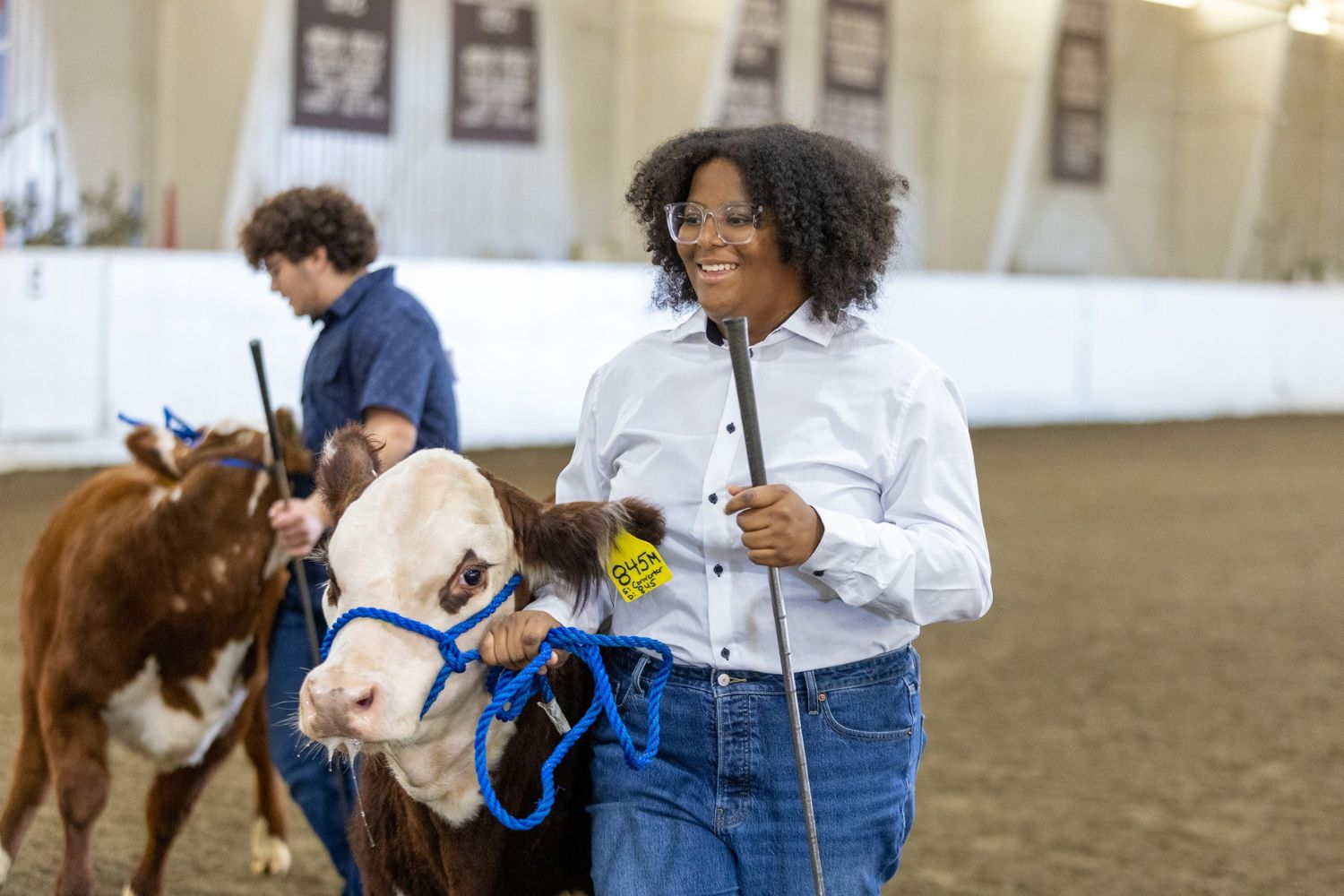
Pre-Vet Program
The Pre-Veterinary area of interest offers hands-on learning and a science-focused curriculum to prepare students for veterinary school and beyond.
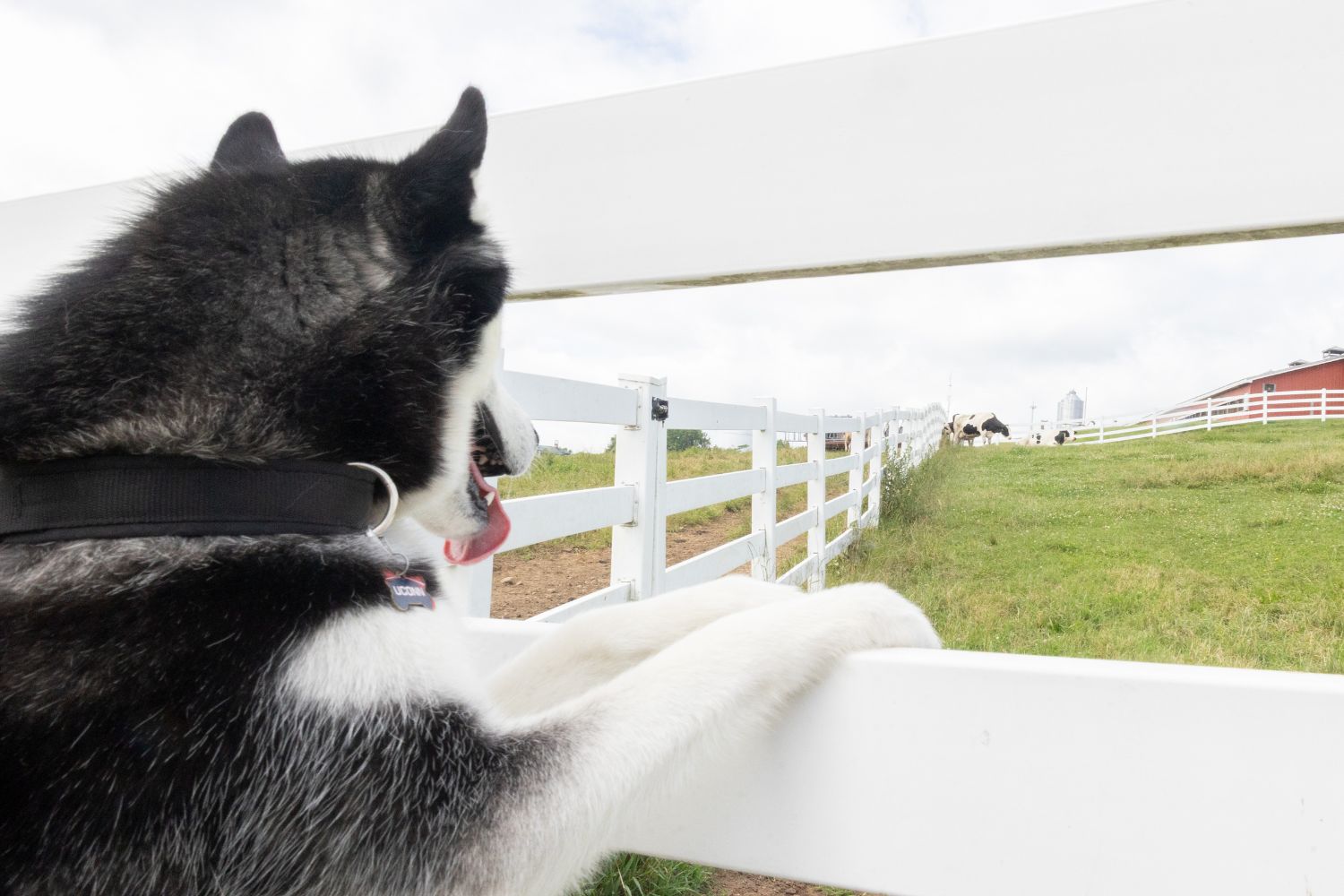
Visit Us
Everyone is welcome to explore our animal barns that are open to the public and to learn more about the animals that are used in the Department of Animal Science program.
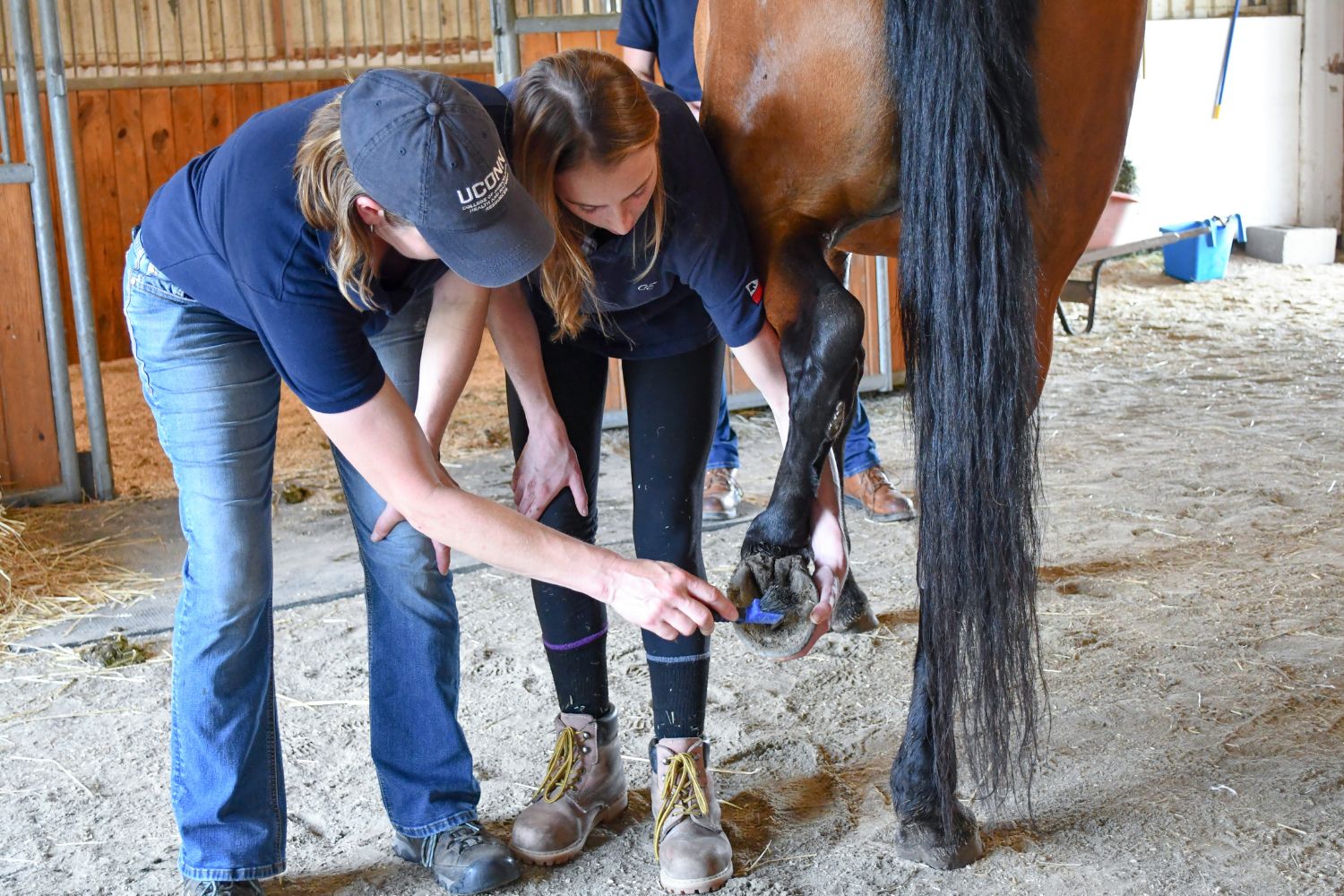
Equine Program
UConn’s Equine Program offers academic and recreational programs to help students and the public ride, learn, and succeed.
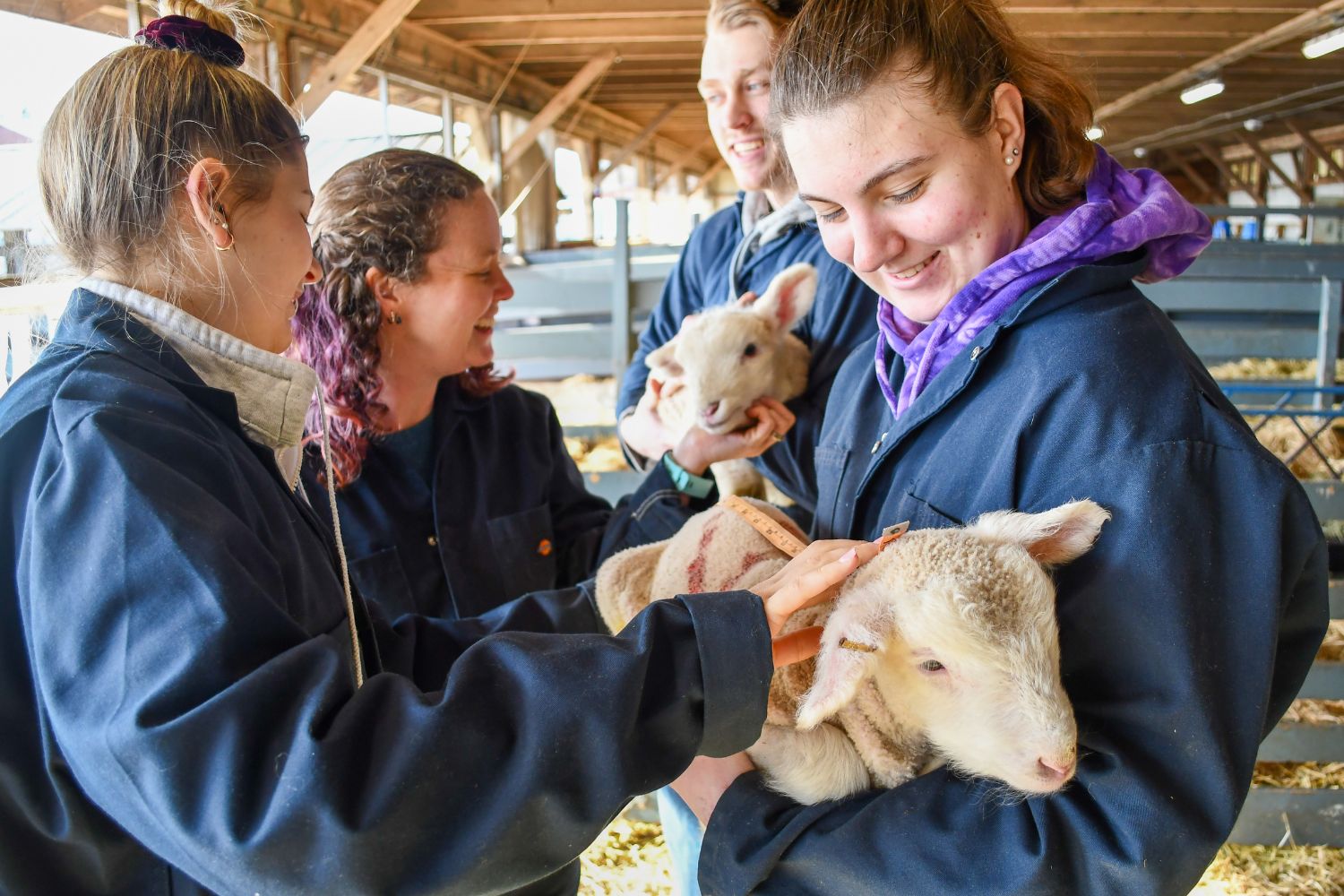
Teaching
Our students learn in the classroom, lab, and barn, with access to state-of-the-art facilities within minutes of walking distance on campus and hands-on instruction from day one.
Research
Opportunities exist for students to work along nationally recognized faculty on impactful research across animal health, nutrition, genetics and more.

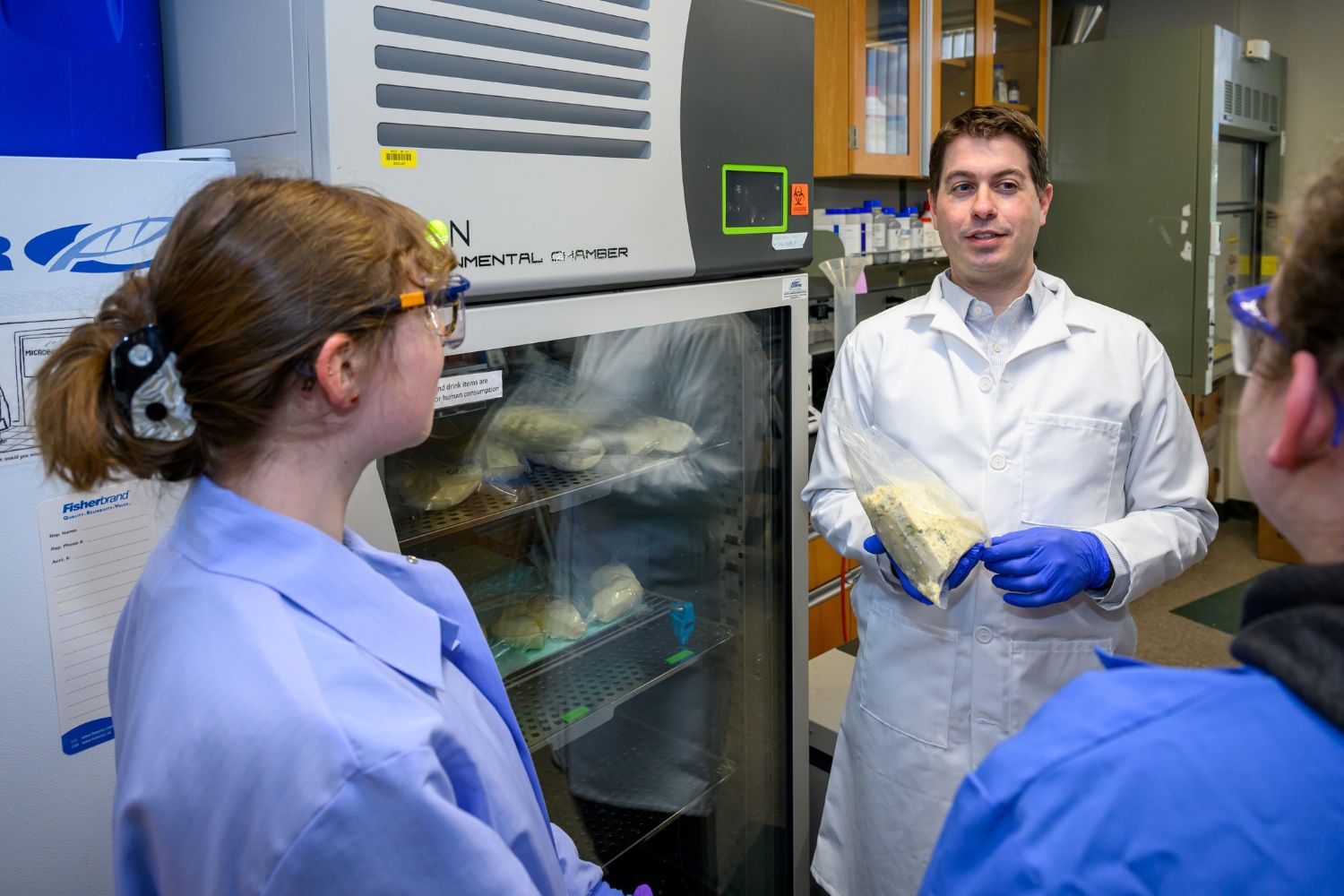
Extension & Outreach
Extension programs empower communities by building a network of awareness and knowledge. Our Department's Extension specialists are here to answer your questions and provide assistance.
Quick Links
Recent News
- category: animal-science
- columns: 3
- pictures: on
- number-of-posts: 3
- safe-fetch: 1
- attempted-request: https://today.uconn.edu/wp-rest/wp/v2/posts?category-name=animal-science&posts_per_page=3&adjacent-posts=true&_embed


